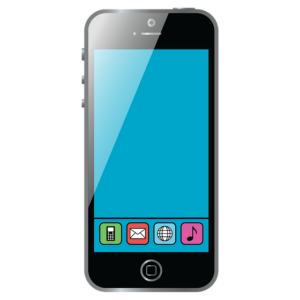Businesses using autodialers in Raleigh, NC, must adhere to stringent consumer protection laws to avoid legal issues. Engaging an experienced autodialer lawyer or attorney from a reputable autodialer law firm in North Carolina is crucial for understanding and complying with relevant state and federal regulations, such as the TCPA, to mitigate risks and ensure practices align with current standards. Regular audits, consent management, and staff training are also essential for staying compliant and protecting operations.
Navigating the compliance landscape of autodialer practices in Raleigh, North Carolina, requires a deep understanding of state regulations. This article serves as your comprehensive guide, offering insights into key compliance areas and practical steps to assess your autodialer protocols. With an emphasis on legal implications, it explores best practices for ensuring adherence to autodialer law, empowering businesses with the knowledge to avoid pitfalls and leverage professional services from top-tier autodialer lawyers North Carolina and attorneys. Discover how to safeguard your operations and stay compliant in this regulated environment.
Understanding Autodialer Regulations in North Carolina
In Raleigh, North Carolina, businesses engaging in autodialer practices must navigate a specific legal landscape to ensure compliance with state regulations. The North Carolina General Assembly has implemented laws governing automated telephone systems, aiming to protect consumers from intrusive and unwanted calls. These regulations are designed to balance businesses’ marketing efforts with individuals’ right to privacy. Understanding these laws is crucial for companies using autodialers to avoid potential legal repercussions.
Hiring an experienced autodialer lawyer North Carolina or consulting with autodialer attorneys North Carolina from reputable autodialer law firms North Carolina is advisable. These professionals can guide businesses through the complexities of the autodialer law and ensure their practices align with current legal standards. Staying informed about evolving regulations and seeking expert advice are essential steps in maintaining compliance and mitigating risks associated with autodialer usage in North Carolina.
Key Compliance Areas for Autodialer Practices
Assessing Your Autodialer Protocols: A Step-by-Step Guide
Assessing your autodialer protocols is a crucial step in ensuring compliance with the laws and regulations governing telemarketing practices in North Carolina. Here’s a step-by-step guide for businesses operating within the state, employing an autodialer lawyer or attorney from a reputable autodialer law firm in North Carolina can be immensely helpful.
1. Identify Applicable Laws: Start by understanding the specific laws and regulations that apply to your business. The North Carolina Department of Justice (DOJ) oversees telemarketing activities, and violations can result in significant fines. Familiarize yourself with the state’s Do-Not-Call list requirements, consent rules, and any industry-specific norms set by the Federal Trade Commission (FTC).
2. Review Your Autodialer Software: Study your autodialer software thoroughly. Ensure it complies with legal standards for obtaining consumer consent, managing do-not-call requests, and maintaining accurate records of calls made. Check if the software provides features like opt-out mechanisms, call scheduling, and data analytics to track compliance.
3. Conduct a Call Record Audit: Analyze your call records to ensure they accurately reflect your autodialer’s activity. Verify that all calls were initiated in accordance with consent and respect for do-not-call requests. Look for patterns or potential violations, such as repeated calls to the same number after an opt-out request.
4. Implement a Consent Management System: Develop a robust system to manage consumer consent. This involves obtaining clear and verifiable consent before making automated calls, maintaining records of consent, and providing easy opt-out mechanisms. Regularly update your consent management process to comply with any evolving legal requirements.
5. Train Your Staff: Educate your team on autodialer compliance best practices. Ensure they understand the importance of following regulations and their roles in ensuring adherence. Regular training sessions can help maintain a culture of compliance within your organization.
Legal Implications and Best Practices for Autodialer Law in Raleigh
The legal landscape surrounding autodialer practices in Raleigh, North Carolina, is complex and ever-evolving, with strict regulations designed to protect consumers from unwanted phone calls. Auto dialers, while powerful tools for businesses, must navigate a series of federal and state laws to ensure compliance, including the Telephone Consumer Protection Act (TCPA). Non-compliance can lead to significant legal repercussions, such as hefty fines and class-action lawsuits.
To avoid these pitfalls, best practices recommend engaging the services of an experienced autodialer lawyer or attorney in North Carolina. A reputable law firm specializing in autodialer law can provide guidance on obtaining proper consent, managing call records, and ensuring compliance with do-not-call lists. Regular audits and updates to calling scripts are essential to stay ahead of changing regulations. By prioritizing legal compliance, businesses can protect their operations, maintain customer trust, and avoid costly legal disputes.






